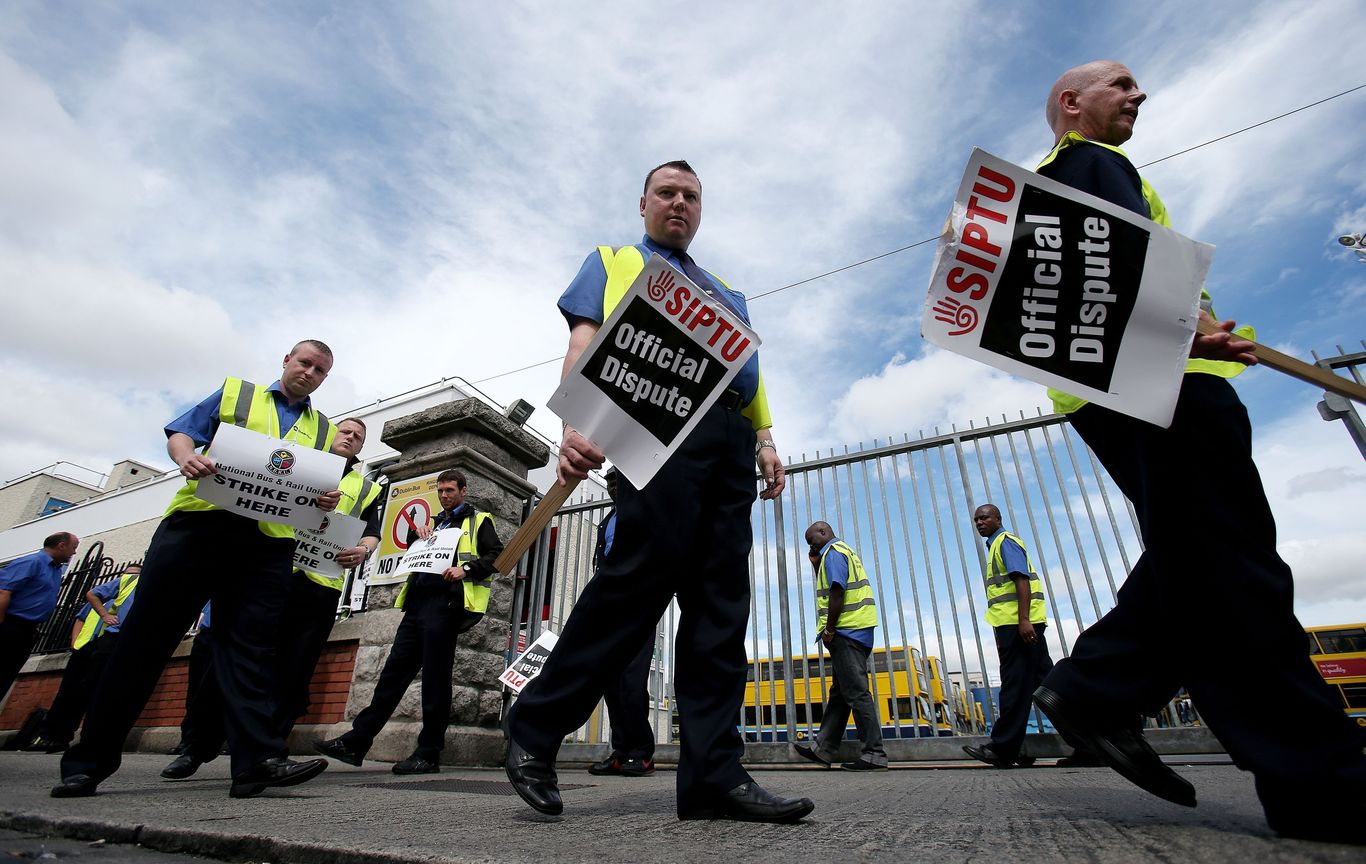Poll: Should 'essential' public-sector workers be banned from going on strike?
Leo Varadkar suggested the Labour Court should be the ‘final arbiter’ for certain disputes.
THE FRONT RUNNER in the Fine Gael leadership contest has suggested that certain public sector workers should effectively be banned from going on strike.
Minister for Social Protection Leo Varadkar – who is widely tipped to become the next taoiseach – said in his policy paper that legislation should be drawn up to make Labour Court recommendations binding on employers and unions in “essential public and security services”.
“People should no longer be inconvenienced by strike action in essential services,” the document said. “The Labour Court will be the final arbiter and will ensure that workers receive a fair response to any claim.”
The number of working days lost as a result of industrial disputes last year more than doubled compared to 2015.
Speaking at the launch of his manifesto today, Varadkar suggested the likes of emergency service workers and air traffic controllers could be covered under such legislation.
Varadkar’s proposal was criticised by the head of the National Bus and Rail Union (NBRU), Dermot O’Leary, who accused Varadkar of having an “undemocratic ‘Tory’-style mantra”.
“It seems to me that Leo, in his determination to appeal to certain business interests, has decided to set course on an anti-trade union, anti-worker policy,” he said in a statement.
With that in mind, we’re asking Fora readers this week: Should ‘essential’ public sector workers be banned from going on strike?






